"All these characters come in then disappear and you wonder what happens to them and you never know."
The Innkeeper
Petronius: the creator
Caius Petronius was born into a wealthy family in Marsalla (modern-day Marseilles) in
AD/CE 27. As well as writing The Satyricon, one of the earliest novels to reflect the lives of ordinary people, he was arbiter (judge) of elegance and style to the
Emperor Nero. Like many servants of an unstable dictator, he was eventually cast aside. Unlike many of his colleagues and
modern equivalents, in AD/CE 66 he chose to retire from life as well as public service.
The few details we have from Petronius' life come from the historian Tacitus, as recalled on Wikipedia.
|
|

An artist's impression a thousand years after Petronius died.
|
Encolpius: a young man
|
Encolpius claims to have been a gladiator, but he wouldn't last a minute in the circus. Throw him a trident and he'd stab his own foot with it.
No, let's be generous and call him a student, young, brash and with his eye on the main chance - although the main chance seldom has its eye on him.
Nevertheless, whatever the obstacles - some very painful - that life throws in his path, Encolpius almost always rises to the challenge.
|
|
 Martin Potter as Encolpius in Fellini Satyricon
Martin Potter as Encolpius in Fellini Satyricon
|
Ascyltos: a young man
|
Ascyltos should be the gladiator. If there's a fight, he'll be in the middle of it, and if there's a fight he probably started it. He says he's a student and he maintains the proud tradition of regularly getting drunk. He can't remember what he studies but if he ever reaches old age he'll tell you he's a graduate of the
University of Life.
|
|
 Hiram Keller as Ascyltos
Hiram Keller as Ascyltos
in Fellini Satyricon
|
Giton: a youth
|
We first meet young Giton as Encolpius' minion, a role that encompasses lover, servant and cook. At first Giton appears not very bright, with no initiative and happy to do whatever Encolpius tells him, as long as there is something to eat. Then we wonder whether he knows exactly what he wants and gets it by going with the flow.
|
|
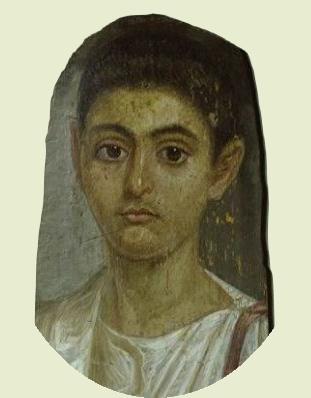 a Roman youth
a Roman youth
|
Fortunata: a very rich woman
We don't know anything about her early life but we suspect she made more money on her back than on her feet. Married Trimalchio (below), enjoys his wealth and barely tolerates his
boorish behaviour (mind you, hers is not much better). The only person apart from the Emperor that Trimalchio yields to.
If this bust recently sold at auction portrayed her,
the sculptor should be handsomely rewarded for his flattery.
|
|
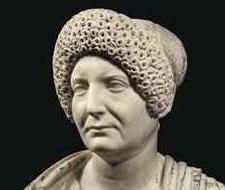
|
Trimalchio: a very rich man
|
Once a slave, now the richest man in the Empire (apart from the Emperor, of course), Trimalchio displays
his wealth, generosity and humility to all who respect him - and his just and righteous anger to all who displease him. Encolpius and Ascyltos, with Giton in tow, are invited to one of
his legendary banquets. There will be a host of guests, every delicacy of fish, fowl and meat, musicians, acrobats and dancers, not to mention Falernian wine - the best in the Empire. Let us hope our three companions survive the feast.
|
|
 Ugo Tognazzi as Trimalchio in Gian Luigi Polidoro's Satyricon
Ugo Tognazzi as Trimalchio in Gian Luigi Polidoro's Satyricon
|
Tryphaena: a rich woman
|
We don't know much about Tryphaena apart from the fact she has money, travels for pleasure and is obsessed by Giton. Oh, she likes good wine and we wonder if there is some mystery in her past.
Perhaps she is a beauty like this young woman immortalised in a portrait now residing in the Metropolitan Museum of New York.
|
|
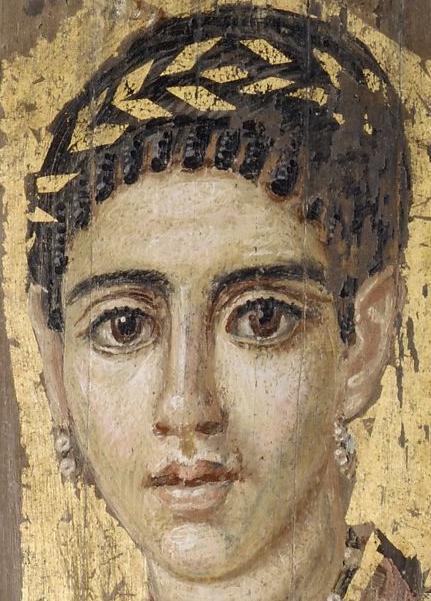
|
People: only in the stage version
Daphne: a slave
|
Acquired by Trimalchio as an infant in a batch of slaves that came with a purchase of land. She was not
expected to survive but somehow did and grew up working in the kitchens. She has a child and her hope
is that one day she and her daughter will be free.
|
|
no picture because
she's only a slave and a female;
no Roman would waste precious time depicting something of
no value
|
And . . .
|
As Encolpius, Ascyltos and Giton make
their way from town to town, adventure to adventure, their paths cross with dozens of women and men of every age, status and sexual prediliction. Petronius brings each one to life on the page.
We do the same on the stage with a handful of actors.
You want an innkeeper? We've got one. Sailors? We have a few. Priestesses and acolytes? Yes. Crowds in the Forum? Stallholders, slaves and whores young and old, male, female and . . . ? You'll find them all. Lichas the sea-captain? Of course. Agamemnon? Well, not that Agamemnon... And many, many more.
|
|
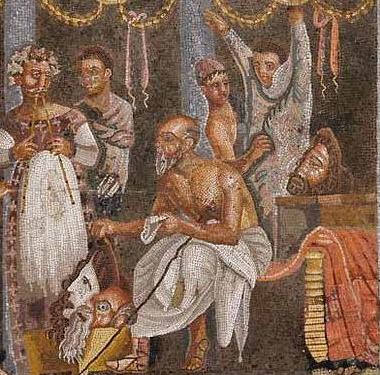 Roman actors
Roman actors
|
|
|
Not currently scheduled
* previous productions *
* request a licence *
Script
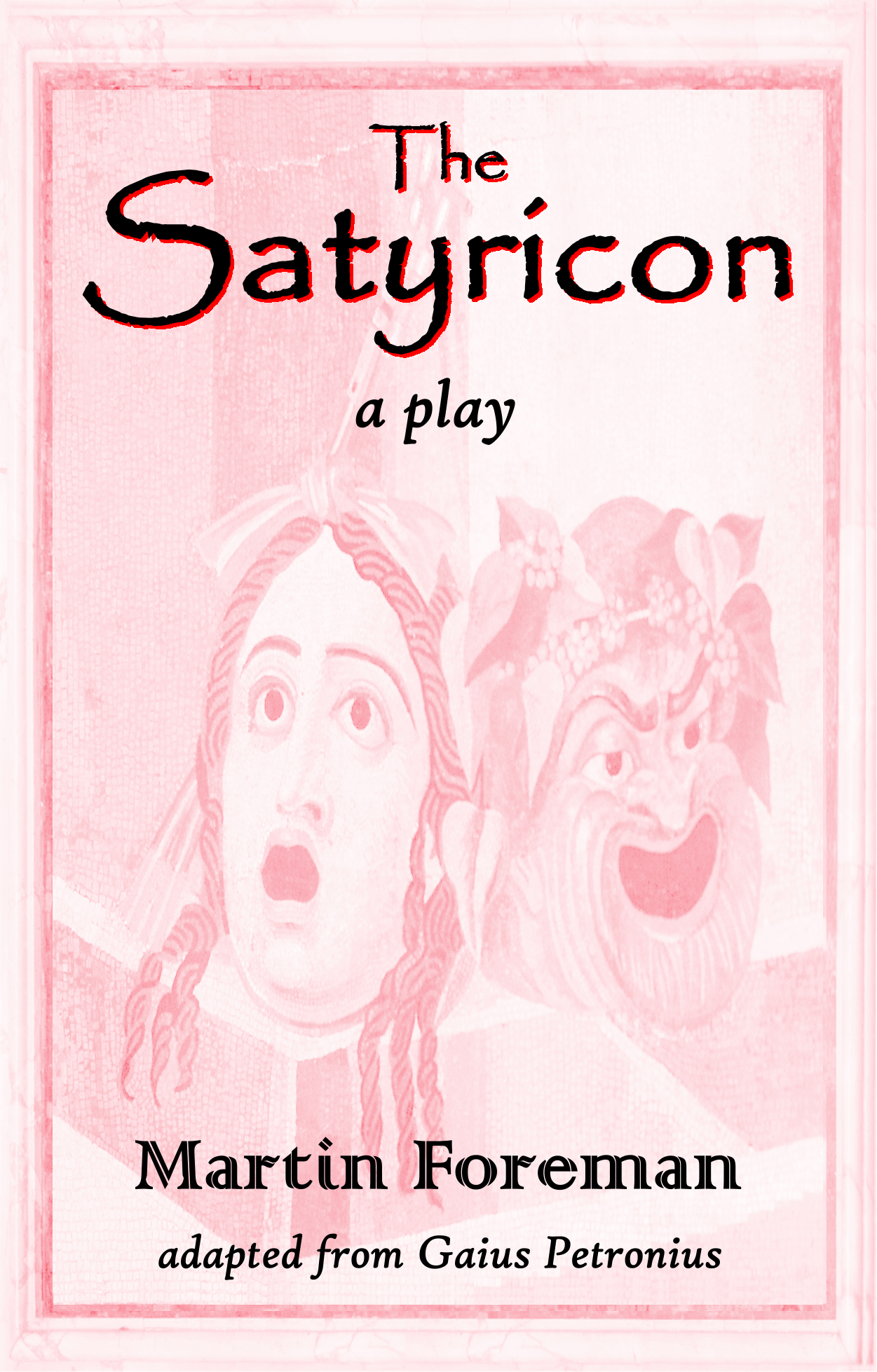
£10.99
free UK postage


supporting amateur theatre
|










